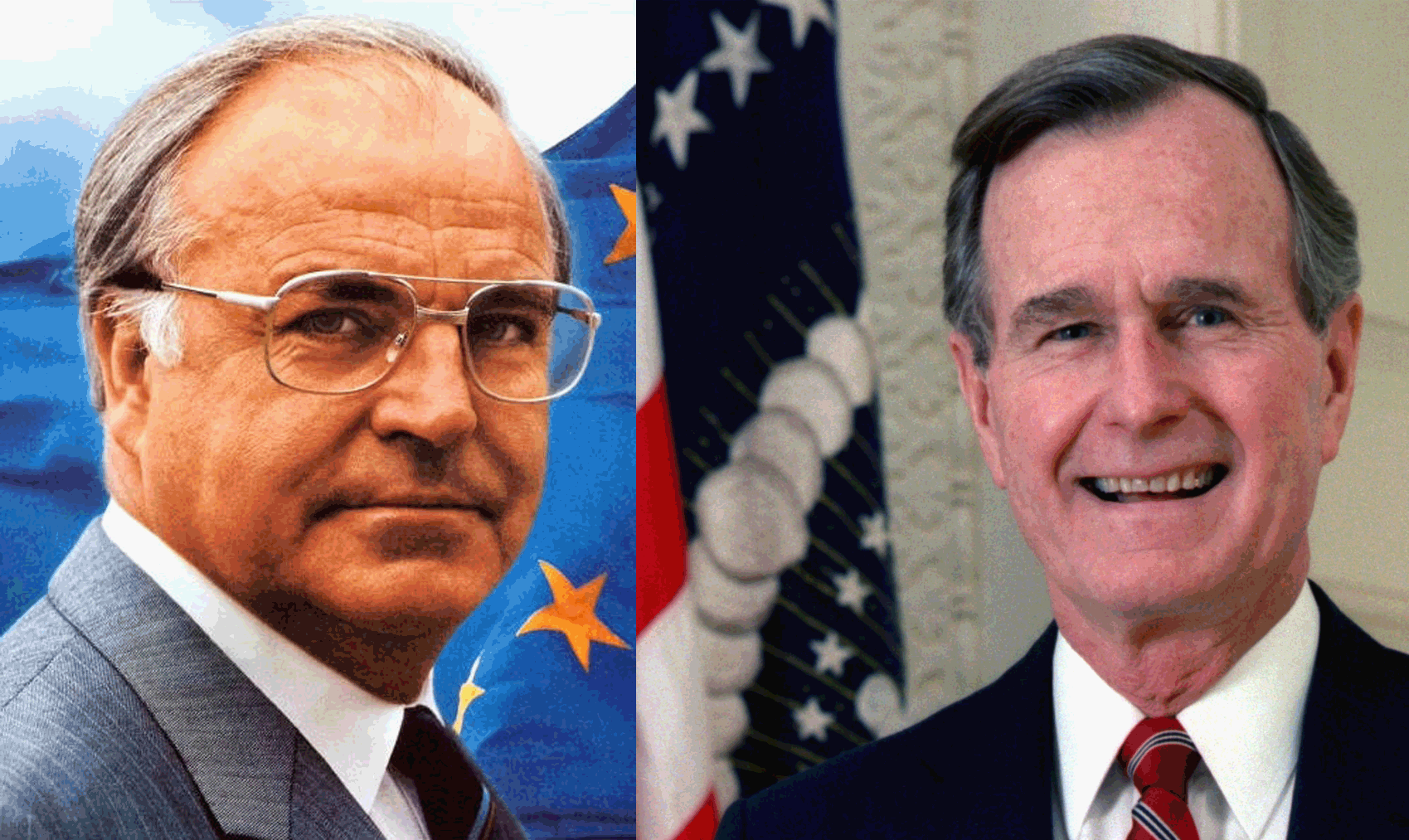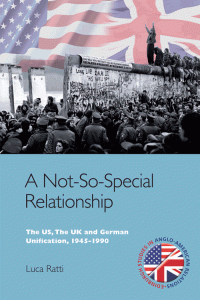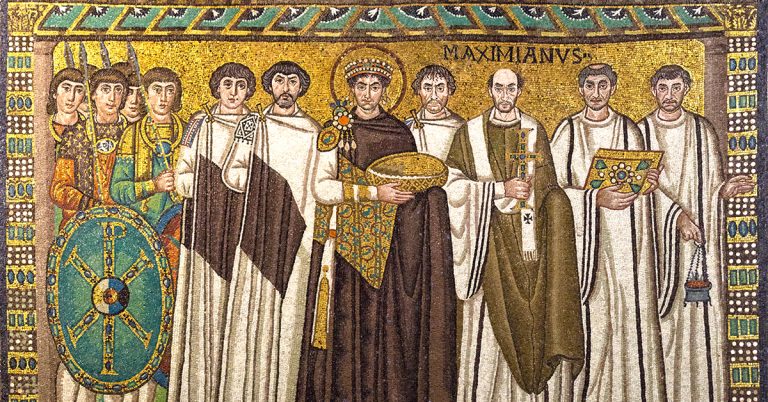
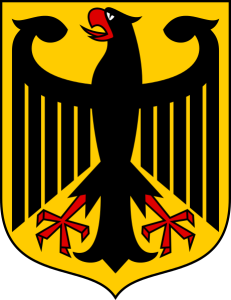
Since the Federal Republic of Germany’s admission into NATO in 1955, German–American relations have been a cornerstone of transatlantic and European security and stability. Both Washington and pre-unification Bonn championed liberal democracy, free trade and fundamental civil and human rights. Allied commitment to these values after unification confirmed their importance for
transatlantic security at the end of the Cold War. The US and the Federal Republic were the driving forces behind the reform of institutions such as NATO and the EU, and their enlargement to include former Soviet bloc states.
But now, between Donald Trump and Brexit, we are faced with the possibility of serious changes in European security. The US–German relationship seems more uncertain than ever. Donald Trump and Angela Merkel are trying, painfully, to address the trade and security imbalances of the 21st century. But at the end of the 43rd G7 summit in Taormina, Merkel made a strong statement. The days when one could fully rely on others are over. Europeans, she suggested, must take their destiny into their own hands.
Meanwhile, Britain continues to estrange itself from the European project. At the same time, Russia is challenging the post-Cold War European settlement to reclaim some influence on former satellites and Soviet republics.
The Anglo–American ‘Special Relationship’
More than 70 years ago, Winston Churchill tried to whip up American support for the British position over Europe and the Soviet Union. During the Cold War, London encouraged US efforts to keep Soviet ambitions on Europe and Germany at bay. Nonetheless, the two countries’ views were not always identical. Washington genuinely supported the liberation of the ‘captive nations’ of Eastern Europe and the German people’s ambition to self-determination and unity following the establishment of the Soviet bloc. Britain, meanwhile, took a more careful approach.
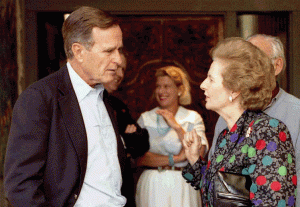
A fundamental British concern was the balance of power in Europe. On occasions, this mattered more than the East European and German ambition to self-determination and freedom.
In the early 1950s, Churchill tried to strike a deal with the Soviets over Germany to promote détente with Moscow. In 1989, Margaret Thatcher remained skeptical, as US President George H.W. Bush and Secretary of State James Baker III swiftly consented to Germany’s unification. The British then offered a hand of reconciliation to the Russians. In early 1990, Whitehall attempted to put German unification on hold by deepening bilateral cooperation with France and seeking the support of other European nations.
The UK found itself apparently devoid of the ‘special relationship’ and deeply hurt in its national pride and international prestige. London even contemplated using Russia as a future counterweight to the increasing influence of a united Germany in Europe. The UK called for a reinvigoration of the Conference on Security and Cooperation in Europe (now the Organisation for Security and Cooperation in Europe). The Kremlin’s preferred alternative to NATO, this was the only Pan-European institution of which Moscow was, and remains, a full member.
The German–American Relationship
A strong relationship with the United States has been the bedrock of German foreign policy since the Federal Republic’s establishment in 1949. Washington and Berlin worked closely within the institutions established after World War II to foster communication and cooperation among nations. Nevertheless, frictions and imbalances in the relationship were evident
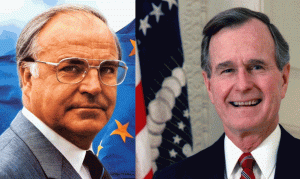
During the Cold War, the US was largely responsible for European security, and Germany focused on economic reconstruction and development. At the same time, West Germany’s concern with preserving amicable ties with the USSR raised transatlantic anxieties. These were particularly evident after the beginning of détente in the early 1950s and the erection of the Berlin Wall in 1961. In the 1970s, President Richard Nixon raised concerns over Germany’s monetary policy and their new ‘Ostpolitik’ towards the Soviet bloc.
From a political and military standpoint, Germany has been unable to wear the boots of Washington’s new partner in leadership. In the early 2000s, the Bush–Kohl love affair was challenged by several factors. These included the unwillingness of EU states to sacrifice their national sovereignty in the name of a truly federal Europe; Moscow’s resistance to the eastern enlargement of NATO and the EU; and Germany’s reluctance to assume a prominent role in security and defence issues.
Anglo–American and German–American relations today
These old arguments are gaining new significance and renewed strength. What does this tell us about the current state and the future of the Anglo–American special relationship? Or the German–American partnership?
The German–American alliance appears on shaky ground. The Trump administration has signalled its intent to review the US attitude to transatlantic security and European integration. It has also raised significant concerns about the future of NATO and the transatlantic security complex. Despite Berlin’s restated commitment to spend 2% of its GDP on its military by 2024, Trump has claimed that Germany owes ‘vast sums’ of money to NATO and the US. A different US attitude towards Europe will have far-reaching repercussions for Berlin’s role in European politics and transatlantic relations.
In Britain, some hope that the shifting sands of transatlantic politics will provide an unexpected opportunity: a chance to revive the ‘special relationship’ with Washington. President Obama’s belief that Britain was not an essential European partner was only true from a financial and commercial standpoint. London’s vital role in the post-Cold War world ensured that Germany failed to replace the UK as the US’s most trusted ally. The first Gulf war in 1991, the invasion of Iraq in the aftermath of 9/11 and a prolonged military effort in Afghanistan have demonstrated the ongoing importance of the Anglo-American special relationship for transatlantic security.
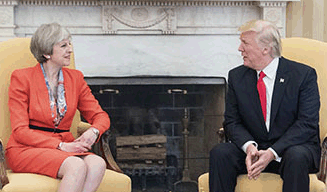
At the end of January 2017, UK Prime Minister Theresa May was the first foreign leader to visit US President Donald Trump at the White House. Many baulked at the sight of Britain’s premier eagerly accepting the invitation from the controversial 45th American president. But the Conservative Party had never accepted the humiliation of Bush referring as early as May 1989 to the Germans in Mainz as the US new ‘partners in leadership’. Some saw Theresa May’s journey to Washington as the start of Britain’s brave new world.
The UK’s decision to quit the European Union represents the last chapter of the Anglo–German fracture at large in 1989–1990. During his presidential campaign, Donald Trump placed Britain’s vote to leave the EU at the heart of his election bid. This reversed a consolidating tradition of American policy towards European integration. He later referred to his unexpected victory as ‘Brexit plus plus’.
Churchill and Thatcher might have been glad that Anglo–American relations are back in a big way. But what does this mean for the future of European and transatlantic security? This remains to be seen – but history has made a powerful return.
|
| By Luca Ratti |
|
| A Not-So-Special RelationshipThe US, The UK and German Unification 1945-1990Luca Ratti |


